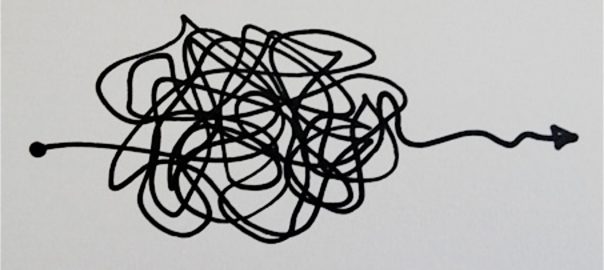
We need a rediscovery of thoughtfulness in a world afflicted by a “dearth of depth and surfeit of superficiality.” (John Blanchard). The immediacy of experiences and information inflate human arrogance and make everyone a pseudo-expert. We have three tyrannies working: 1) experts competing for power; 2) the ubiquity of information that people confuse with true wisdom; and 3) a public square paralyzed by polarization that devolves into personal alienation instead of civil debate and learning.
We live in a world of instant information. This can be deceptive, because access to data and opinions is not the same thing as accurate information or insight. The other phenomenon is that a rumor or storyline is repeated so often that it becomes “fact” in the minds of many. And when it is later found to be partially or wholly untrue, a belated retraction cannot undo the damage to public knowledge. Information flows, but insight leading to integration of thought and practice is harder to find.
It is time for biblical thoughtfulness, for a fresh understanding of what the Apostle Paul refers to as the transformed mind of the follower of Christ. Romans 12:1-2 and Ephesians 4:22-24, building on the foundations of OT wisdom literature and the instructions of Jesus, offer hope for inner transformation leading to practical actions that honor God and serve our neighbors. The key word in both passages is transformation. The word is metamorphosis in the Greek and its underlying meaning denotes total change, reorientation, and a new mind.
Instead of unreflected and unfiltered reactions to life, here is a summary of a pathway to thoughtfulness:
- We receive events, inputs, inner intuitions and thoughts that create and refine the “lenses” through which we understand our world. We all have conscious and unconscious influences that affect our thinking. The thoughtful person recognizes these and takes time to absorb (not repress or suppress) the experiences.
- Instead of reacting immediately, we reflect on our feelings and thoughts and pause before saying or writing things we might regret.
- This reflection is then united with research, with the goal of understanding the different perspectives on the issues at hand.
- Receiving, reflecting, and research are all done subject to God’s revelation found in his two books. The first is Holy Scripture. Our question must always be, “How does God’s Word speak to this experience or issue directly or indirectly? The second book is God’s common grace or natural revelation. This consists of the best empirical and rational thinking in various fields.
- Finally, the thoughtful woman or man responds to the situation with as much grace and truth as possible.
May we be people of reflection and research, submitting to revelation and responding with love and wisdom in a world awash with emotionalism and irrationalism.




